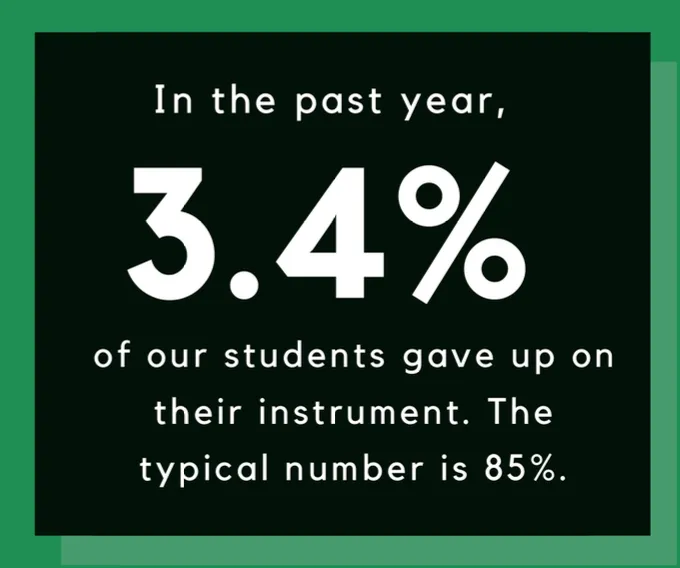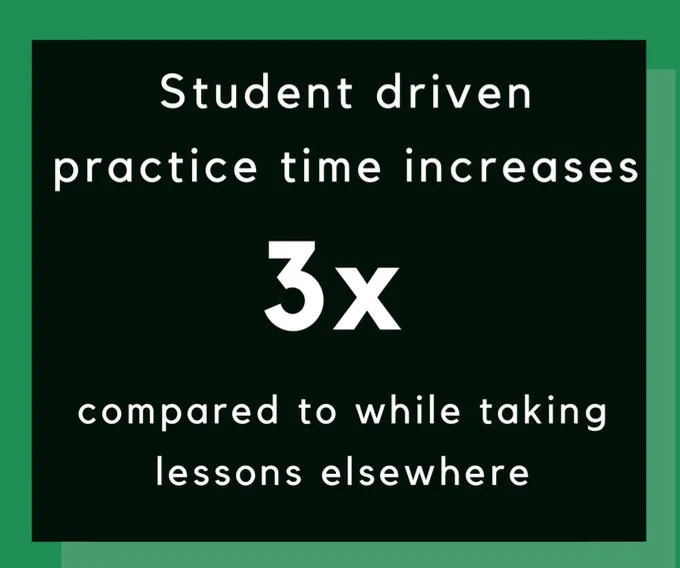ZEN MUSIC
TEACHING LIFELONG SKILLS THROUGH MUSIC
Set your kids up for success with music lessons that go beyond just learning an instrument
As seen in:
MUSIC LESSONS AREN'T JUST FOR CAREER MUSICIANS!


Learning a musical instrument is one of the best things a child can do for their mental health and academic achievement.
But 85% of kids who start on an instrument are still left behind, because they give up too early to experience the real benefits.
This isn’t their fault - it’s the teachers’ fault.

Ella is a young ukulele student who recently participated in our Zen Music Student Concert.
She started taking lessons with us because the ukulele teacher at her school wasn’t giving her anything to work on that she was interested in.
According to him, she “wasn’t ready” for the songs she actually liked, and his only advice about this was “just keep practicing.”
Her mother’s heart was breaking - she was watching Ella's initial excitement about music slowly fade.
Keeping kids motivated takes more than just encouragement. They need to be provided with:
Material that they’re interested in
Specific weekly and monthly targets to hit
Accountability for their daily practice
Opportunities to challenge themselves and push their boundaries
How do we keep kids motivated?

Custom Sheet Music
Our students learn their favourite songs right away, specifically arranged for their skill level and goals

Goal-Tracking System
With our unique goal-setting and accountability system, kids always know what they're working towards and how to get there

Student Concerts
Regular performance opportunities throughout the year mean that our students always have an exciting challenge to work towards


Ella has now been learning with us for well over two years - she’s officially not one of the 85% of kids who quit.
Our teacher guided her through our monthly goal-tracking system throughout April with the end goal of being prepared for our concert in May.
She performed three of her favourite songs, using the custom-made arrangements we had designed for her skill level.
She was nervous to perform, but our supportive and safe environment allowed her to face her fears.
Within a week of the Zen Music Student Concert, she was so inspired that she had decided to start piano lessons on top of her usual ukulele lessons.
And Ella isn't the only one...
“I can't recommend Zen Music enough! They have reignited my daughter's passion for learning to play the piano, read and even create her own music. Her instructor is patient, upbeat and provides a positive learning environment...and his love of music is inspiring!”
- Lindsay, Student's Mother
“Very lucky to have Zen Music and Emilie as Bella’s ukulele teacher. Can’t be more happy with how knowledgeable and prepared Emilie is. To see our children fall in love with music is the absolute best thing.”
- Jessie, Student's Mother
“James is a caring, inspirational, and professional guitar instructor. He models a passion for music and creativity, and encourages his students to get the most out of their potential.”
- Kathy, Student's Mother
Zen Music Gets Results!



Private Lessons
Group Classes
Click the links below for details on our group ukulele and guitar classes at various schools in Hong Kong.
We pride ourselves on creating a fun learning environment, while also setting our kids up for success that goes far beyond their musical endeavours.
Note: These classes are hosted at schools, but students from other schools are also welcome!

Have more questions? Get in touch!
I agree to terms & conditions provided by the company. By providing my phone number, I agree to be contacted by Zen Music via SMS and Email.




